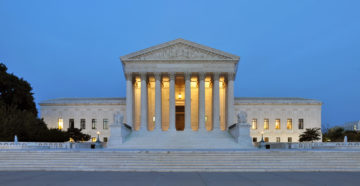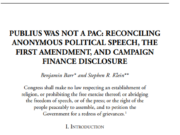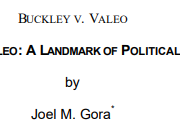As political campaigns have become more expensive and sophisticated, Congress has increasingly regulated them, yet the Supreme Court has declared many aspects of that regulation unconstitutional. Recently, in Canyon Ferry Road Baptist Church of East Helena, Inc. v. Unsworth, the Ninth Circuit continued this deregulatory trend by holding that Montana’s election contribution disclosure requirements were unconstitutional as applied to de minimis campaign expenditures. Though the bureaucratic disclosure requirements of the regulation at issue may chill speech, an effect that the court correctly recognized, another feature of the regulation may chill speech even more: its third-party enforcement mechanism. Because the regulation allows third parties to bring complaints of campaign rule breaking, enforcement against minor parties may spring from questionable motives, result in disproportionate burdens, and ultimately militate against the public interest. Thus, whether using the information interest regulation rationale as a pretext for harassment or for mere democracy, such third-party enforcement of campaign disclosure requirements is problematic. This enforcement is especially troublesome given such laws’ disproportionate impact on minor players. Policymakers should recognize this issue when crafting disclosure laws, perhaps by raising the floor for disclosure of contributions when disclosure is urged by a third-party complainant.














